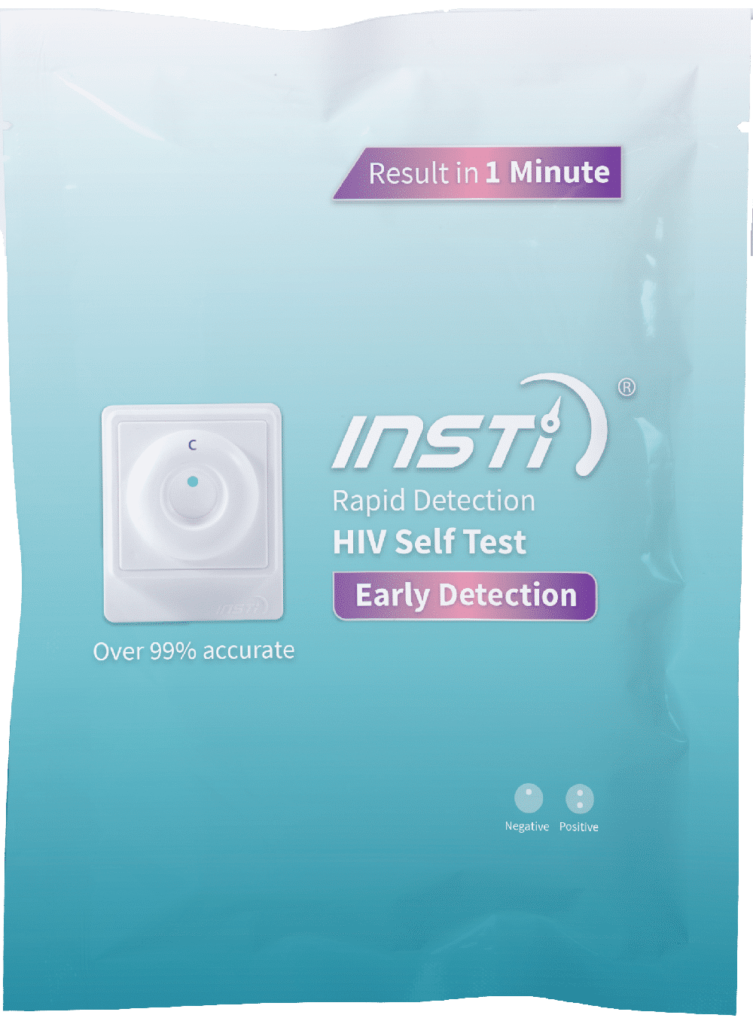INSTI HIV Self Test
The World’s Fastest HIV Home Test Kit

The world’s fastest HIV test
INSTI® HIV Self Test is designed as a single-use at home HIV test kit that allows you to get results in the comfort of your home and at a time that works best for you.
Sample, pour and read your results immediately. It’s that easy.
The test uses simple flow-through technology to detect HIV-1 and HIV-2 antibodies using a drop of human fingerstick blood. The test is intended for use by untrained lay users as a self test to aid in the diagnosis of HIV-1 and HIV-2 infection using a small drop (50μL) of blood obtained through fingerstick collection procedures.
Sample Type
Fingerstick Blood
100%
Sensitivity
99.5%
Specificity

The World’s Fastest HIV Test
Get highly accurate results instantly.
Convenient and Discreet
Get results from the privacy of your own home.
Easy to Use
Simple design. No timers, no fuss.
Sensitive
Detects IgM and IgG Antibodies
- Detects HIV infection up to two weeks sooner than leading brands.
- Built-in IgG capture procedural control
- Proprietary HIV antigen
- Lancet and bandage included
- No timers required
- Spill-free membrane
Approved and Certified By



Detailed AID
Instruction For Use
Contact Us
Enquire Now
FAQ
